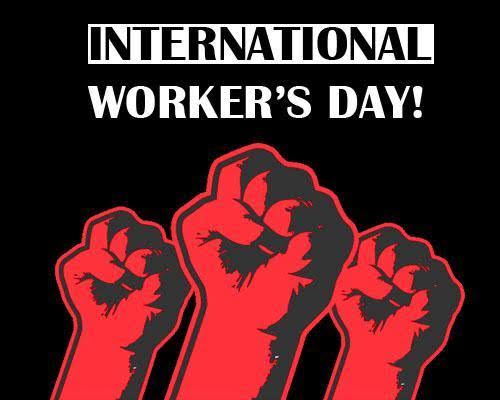By Zimbabwe Environmental Law Association
The Zimbabwe Environmental Law Association joins all the citizens of Zimbabwe and the world in celebrating the past and present victories of workers while making clear the organisation’s commitment to continue defending the workers’ labour struggles. The 2020 International Workers’ Day is being commemorated under a different atmosphere. The day comes at a time when the world is struggling to contain the coronavirus pandemic. This global pandemic has affected all the facets of human life and has brought the global economy to a standstill. The livelihoods of millions of people look bleak. As if that is not enough, the pandemic has also brought to the fore longstanding occupational health and safety challenges.
According to the International Labour Organisation Monitor, more than 1.6 billion people worldwide work in the informal economy in jobs that are characterized by a lack of basic protection, including social protection coverage. The informal economy players often have poor access to health-care services and have no income replacement in case of sickness or lock-down. Many of them have no possibility to work remotely from home. Staying home means losing their jobs, and without wages, they cannot eat.[i]The Labour organisation has warned that the continued sharp decline in working hours globally as a result of the pandemic means that 1.6 billion workers in the informal economy are in danger of losing their livelihoods.
On Sunday, April 19, 2020 a few hours before the expiry of the first 21 day lock-down announced on the 30th of March 2020, the President of Zimbabwe announced the extension of the lock-down by an extra two weeks to contain the spread of the deadly COVID-19 pandemic. The President gave a directive for the mining sector to either resume or upscale operations. However, there were conditions attached to this directive. Mining companies were ordered to fully ensure the safety and health of their workers by observing guidelines set by the World Health Organisation (WHO).
The decision to exempt the mining sector during lock-down has been embraced by the sector players as a welcome development. However, the news that some of the mining companies are subjecting their workers to unfair labour practices makes sad reading. The failure to ensure the safety and health of their employees by providing Personal Protective Equipment (PPE) is a violation that flies in the face of the government’s directive for companies to observe WHO set guidelines on COVID-19.
The agriculture sector, due to its worthy contribution to the country’s food security is another sector exempted from the lock-down. Despite embracing such a move, the farm-workers have bemoaned lack of legislation that ensures the priorotisation of their occupational safety, health and environment. In the wake of the COVID-19 pandemic it is unfortunate that only a few employers have hastened to the directive of providing PPE to its employees such as masks, gloves, sanitisers among others. The casualization of labour in the agriculture sector has seen most farm workers lacking access to social security. Women make up 70% of the workforce in the horticulture and flower sub-sectors and the loss of jobs increases their vulnerabilities when it comes to sexual and reproductive health issues. What is even more scary is the fact that the coronavirus pandemic can result in a hunger crisis if farm workers are not protected while many may end up succumbing to the virus. It is thus important for the government to put in place a policy to ensure that farm-workers are protected.
Related to the above is the fact that Zimbabwe has reopened the tobacco auction floors with the 2020 tobacco marketing season having started on the 29th of April. The risk that this may actually become an epicenter of the virus is high considering the crowds and massive movements of traders, farmers, investors and middlemen. The floors also attract huge numbers of informal traders selling wares to tobacco farmers. It is is critical to ensure crowds are minimised, makeshift water pumps and soap washpoints must be made available while mobile clinics must be set up at these floors.
The Zimbabwean government must resist all the economic and political systems that embed imperialism and capitalism. The well-being of people and the planet must be prioritised before corporate profit. Now more than ever access to clean water; adequate housing and safe working conditions through provision of sufficient Personal Protective Equipment is really critical across all economic sectors. Principles of responsible business conduct along various supply chains including the United Nations Guiding Principles on Business and Human Rights lay a strong foundation for placing the rights of workers before profits. States have the duty to protect everyone within their jurisdiction from human rights abuses committed by business enterprises. In this context the government must go an extra mile to monitor the workers rights situation beyond making the legal and policy pronouncements.
· As the world battles the coronavirus, the frontline workers must be provided with personal protective equipment while the remuneration package must be commensurate;
· Artisanal and Small-Scale mining must be formalised. This is a livelihood sector benefiting millions of Zimbabweans and without adequate safeguards, ASM miners risk falling into the cracks when it comes to supporting provision of PPE on their sites and women’s work along the ASM value chain will continue not being recognized while their susceptibility to avoidable health risks will continue to increase;
· The government must rapidly extend safety cushions and social security systems like the rapid cash transfer to the vulnerable groups in society such as women, children and the vulnerable. These safety cushions and benefits must be distributed in a non-partisan manner.
· Testing for COVID-19 should be upscaled nationally and at industrial sites including the tobacco auction floors.
We honour the heroic struggle of all the workers of the world while special mention goes to the COVID-19 frontline heroes.






